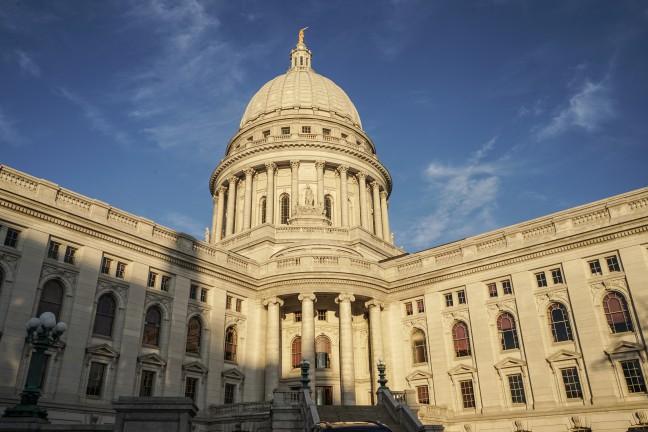When Christina Traub heard about Marsy’s Law for Wisconsin, she wanted to get involved in some way and share her story. She didn’t want future victims of crimes to feel as “lost” during the legal process as she did.
Traub, who was strangled and attacked by her boyfriend at the time, tried to stay on top of updates about the case, but was often the last to know when hearings were cancelled. Though she felt like everyone was trying to give her support, Traub still felt disconnected at times.
“My serious healing is coming to a completion with me getting involved with Marsy’s Law and telling this story and realizing there is a different way this process could’ve happened,” Traub said.
The campaign for Marsy’s Law for Wisconsin started April 4, with a goal to give victims of crime equal rights to those of the accused by updating and strengthening the state Constitution.
In Wisconsin, the rights Marsy’s Law wants to pass are already part of the current law in some sort of form, either part of state statute or a state constitutional right, Marsy’s Law for Wisconsin spokesperson Brian Reisinger said. Because Wisconsin already has victim’s rights, this makes Wisconsin’s proposal different than states that did not have victim’s rights already in their law, he said.
“This constitutional amendment will update our Constitution to ensure equal rights for crime victims that are clear, enforceable and permanent,” Attorney General Brad Schimel said in a statement.
Marsy’s Law would make laws in the state statute part of the state Constitution and clarify wording on rights already part of the Constitution, Reisinger said.
For example, the state Constitution gives victims the right to speak at disposition, but Marsy’s Law would allow the victim to speak up at multiple times during the case and have a greater voice in the process. It would strengthen the victim’s right to proceedings free from unreasonable delay, to get timely notice of proceedings and to receive protection from the accused, to name a few.
“I think that Marsy’s Law is a big step in putting the victim and the accused on equal footing,” Traub said. “Being part of the [legal] process and knowing you’re being heard can be part of the healing process.”
Traub hopes Marsy’s Law and its campaign will bring more awareness and change perceptions about victims of violent crime. The accused is innocent until proven guilty, but the victim’s side doesn’t always get the same kind of respect, she said.
In order to amend the state Constitution, the state Legislature and voters have to support the law two years in a row, Reisinger said. It’s possible voters will see this on the ballot in 2019, he said.
Two Republican lawmakers are introducing the law, but Reisinger said Marsy’s Law has had positive conversations with both Republicans and Democrats. Currently, the proposed law has 42 co-sponsors, he said.
Nonpartisan organizations, such as Wisconsin Coalition Against Sexual Assault and Wisconsin Professional Police Association, have also showed support, WPPA executive director Jim Palmer said in a statement.
Most recently, Mothers Against Drunk Driving, Milwaukee Police Association and Wisconsin Troopers’ Association have announced their support, Reisinger said.
“Enacting Marsy’s Law here in Wisconsin will not only represent an important extension of law enforcement’s fundamental duty to protect the public, but the state’s proud legacy as a national leader in advancing the interests of crime victims as well,” Palmer said.


